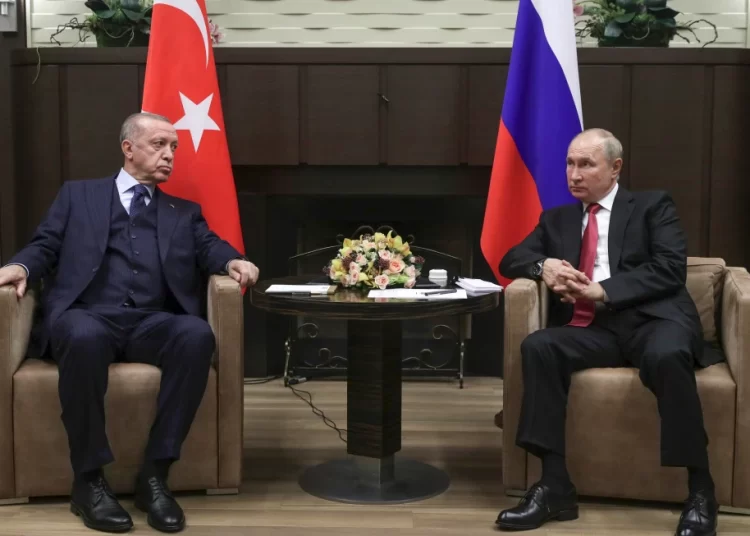Talks between Russian President Vladimir Putin and Turkish President Recep Tayyip Erdogan began on Monday with the Turkish leader seeking to persuade Russia to revive an agreement that allowed Ukraine to export grain and other commodities from three Black Sea ports.
Putin in July refused to extend the agreement, which was brokered by Turkey and the United Nations a year earlier.
Russia complained that a parallel deal promising to remove obstacles to Russian exports of food and fertiliser hadn’t been honoured. It said restrictions on shipping and insurance hampered its agricultural trade even though it has shipped record amounts of wheat since last year.
Opening the talks, Putin said he was open to discussing the grain deal, among other issues.
The two leaders met in Russia’s Black Sea resort of Sochi, where the Russian president has a residence. A lot is riding on the talks for the world food supply.
The meeting takes place against a backdrop of more than 18 months of war and Ukraine’s recent counteroffensive.
In the latest development, Ukrainian President Volodymyr Zelenskyy said on Sunday that Defense Minister Oleksii Reznikov would be replaced this week. The job requires “new approaches,” Zelenskyy said, without elaborating. Reznikov on Monday published a photo of his resignation letter.
Since Putin withdrew from the grain initiative, Erdogan has repeatedly pledged to renew arrangements that helped avoid a food crisis in parts of Africa, the Middle East and Asia. Ukraine and Russia are major suppliers of wheat, barley, sunflower oil and other goods that developing nations rely on.
“My gut feeling is that Putin recognises the leverage he has by using food as an economic weapon, and thus will fight for all he can get in terms of concessions on his wish-list,” said Tim Benton, a food security expert at the Chatham House think tank.
Those may include Russia’s grains, or fertiliser exports, or wider issues, he said.
Data from the Joint Coordination Centre in Istanbul, which organised the Ukraine shipments, shows that 57 per cent of the grain from Ukraine went to developing nations, with the top destination being China, which received nearly a quarter of the food.
Russia has repeatedly attacked the Odesa region, Ukraine’s main Black Sea port area. On Monday, the Ukrainian air force said it intercepted 23 of 32 drones that targeted the Odea and Dnipropetrovsk regions, but did not specify damage caused by the drones that got through.






Discussion about this post